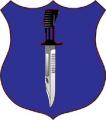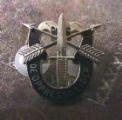3. DEFINITIONS
3.1.
Stability Operations. Military
and civilian activities conducted across the spectrum from peace to conflict to establish or maintain order in States and regions.
3.2. Military support to Stability, Security, Transition and Reconstruction (SSTR). Department of Defense activities that support U.S. Government plans for stabilization, security, reconstruction and transition operations, which lead to sustainable peace while advancing U.S. interests.
4. POLICY
It is DoD policy that:
4.1.
Stability operations are a core U.S. military mission that the Department of Defense shall be prepared to conduct and support.
They shall be given priority comparable to combat operations and be explicitly addressed and integrated across all DoD activities including doctrine, organizations, training, education, exercises, materiel, leadership, personnel, facilities, and planning.
4.2. Stability operations are conducted to help establish order that advances U.S. interests and values. The immediate goal often is to provide the local populace with security, restore essential services, and meet humanitarian needs.
The long-term goal is to help develop indigenous capacity for securing essential services, a viable market economy,
rule of law, democratic institutions, and a robust civil society.
4.3. Many stability operations tasks are best performed by indigenous, foreign, or U.S. civilian professionals.
Nonetheless, U.S. military forces shall be prepared to perform all tasks necessary to establish or maintain order when civilians cannot do so. Successfully performing such tasks can help secure a lasting peace and facilitate the timely withdrawal of U.S. and
foreign forces.









Bookmarks